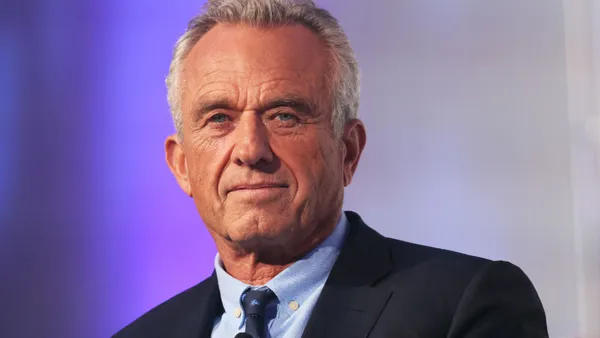A Robotic Pill that Creates Oral Biologics
Mir Imran, Chairman and CEO of Rani Therapeutics, talks about his company’s efforts to develop an injection-free, large-molecule delivery system.
 Biologics can only be administered through an injection, which can affect quality of life and patient compliance, especially for those with chronic disease. If biologics are taken orally, the enzymes in the gut often destroy the drug. Many attempts have been made to convert biologics into oral therapeutics with little success.
Biologics can only be administered through an injection, which can affect quality of life and patient compliance, especially for those with chronic disease. If biologics are taken orally, the enzymes in the gut often destroy the drug. Many attempts have been made to convert biologics into oral therapeutics with little success.
Rani Therapeutics may just have the answer for creating oral biologics, replacing injections for treating arthritis, diabetes, and multiple sclerosis.
The company has created an innovative delivery system: a “robotic" pill that is a sophisticated device that is able to navigate through the stomach and enter the small intestine. The patient takes what appears to be an ordinary capsule, but this capsule is able to pass through the gut and deliver an intestinal injection without exposing the drug to digestive enzymes.
Rani has been able to convert the biologic into solid form inside a sugar needle, which is contained in a sealed capsule. The coating of the capsule is a polymer that protects the capsule in the stomach where the pH is highly acidic. Once the capsule reaches the intestines, the pH begins to rise and the capsule begins to dissolve.
“This is one of the key technologies that has enabled us to develop an outer shell that’s dissolvable, but not in the stomach," says Mir Imran, chairman, CEO, and founder of Rani Therapeutics.
When the capsule has dissolved, the sugar needles are exposed, which are then pushed into the intestinal wall by a force that is supplied by a balloon that is activated to expand by a chemical reaction. As soon as the needles are delivered, the balloon deflates and the patient passes it safely.
Mr. Imran says there are no sharp-pain receptors in the intestine, so the patient doesn’t feel the injection. In addition, the intestinal wall is highly vascularized, which means that once delivered the drug is quickly absorbed.
“When we started working on this I asked a very simple question: why can’t we create a pill that the patient takes with water just like any other pill," he says. “We have demonstrated safety of the delivery mechanism in preclinical models."
Rani Therapeutics has conducted preclinical studies on the pill. The company’s strategy is to start with already approved medicines, and it plans to conduct clinical trials with octreotide for acromegaly and parathyroid hormone for treating osteoporosis. Mr. Imran says the company plans to start formal discussions with regulators in the United States and Europe sometime this year.
 “Right now we have a pilot manufacturing plant, which is able to do the preclinical work," Mr. Imran says. “Human trials will require a substantial investment and GMP manufacturing. We are in the planning stages and this will determine the exact timing of when we start human studies."
“Right now we have a pilot manufacturing plant, which is able to do the preclinical work," Mr. Imran says. “Human trials will require a substantial investment and GMP manufacturing. We are in the planning stages and this will determine the exact timing of when we start human studies."
Rani’s technology, he says, can be applied to other common drugs that are injected, such as insulin and those used to treat rheumatoid arthritis, Crohn’s disease, and psoriasis.
The company has raised $53 million in series D financing, and Mr. Imran says a significant portion of the funds will be used in establishing the aseptic and GMP manufacturing operations. The investment, which follows $50 million-plus raised two years ago, brings the firm’s total raised thus far to $142 million.
The company announced in December 2017 a collaboration with Shire focused on oral delivery of factor VIII for patients with hemophilia A. Shire has obtained exclusive rights to conduct research on, evaluate, and pursue a worldwide, exclusive license for the development and commercialization of the technology for oral delivery of factor VIII.
Rani Therapeutics also has collaborations with AstraZeneca and Novartis, but Mr. Imran won’t specify what molecules these collaborations are focused on.
The company has 50 patents, with additional applications pending. Other investors in the company include: Google Ventures, InCube Ventures, Genescience Pharmaceuticals, Bossa Ventures, Buttonwood, among others.
Rani Therapeutics was founded in 2012 and was spun out of InCube Labs, a multi-disciplinary life-sciences R&D lab focused on breakthrough medical innovations.
Mr. Imran has founded 23 life-sciences companies, 15 of which have gone on to successful IPOs or have been acquired, generating billions of dollars in shareholder value. He holds more than 400 issued and pending patents in the United States, and he was named one of the Top Medical Device Inventors of All Time by QMed. (PV)











